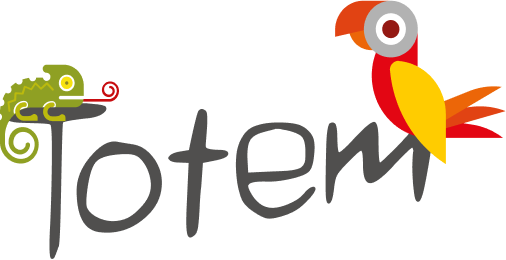It is human nature to have the urge of belonging to a group. Affiliating with a group is a core motive that humans naturally have. For centuries, the human race has conquered the world by collectively working in groups. Businesses can therefore take advantage of this perpetual cycle and use grouping techniques to make their business more successful. Despite uniformity being a crucial element of groups, many people fail to realize the benefits that diversity brings to the group.
Diversity ultimately breeds innovation since you get to work against a different thought processes, values and personalities. Doing so enforces an effort of being compatible with the other person and shapes your ideas in a way that complies with all different objections. Therefore, the end product which stems from a diverse group is one that caters to the vast majority of people, which in turn leads to success. This end product can either be in the form of an idea, an accomplished task, or more.
Secrets of Teamwork Success
Study shows that teamwork leads to faster innovation, higher productivity, quicker mistake resolution, and better solutions to problems. However, not every team is successful, which is why it is essential for you to build an effective team that is capable of delivering results. One of the key traits of successful team involves determined roles.
Importance of Group Roles in Team Work
Across the globes, bees serve as a crucial part in the agricultural success. They spread out across the world and their species has survived for millions of years. The common bee became very prominent due to their unique ability to work together collectively and assign roles so that their colony functions effectively.
Prior to being born, the queen bee selects the larva’s gender based on what the hive needs. The role selection for each bee begins even before they are born into the world. This allows bees to be aware of their roles and start performing their duty as soon as they come into the world. Once they become adults, the male bees start to mate and spread the colony’s genes to different locations and hives.
On the other hand, female bees tend to take up their own unique set of tasks, oriented around the daily function of the hive. Beyond selecting the gender, the genetics of bees are also subject to the pre-assigned roles. These roles are pivotal to success and they are best exemplified by the females, who not only build larva cells, but also guard the hive and organize food for others.
Overall, their unique ability to assign and fill roles is a major contributor to their survival role. Fortunately, the benefits of assigning roles is not limited to only bees, and the importance of assigning roles in companies brings out the strive for efficiency. Businesses are in need of employees who are both capable of filing roles and recognizing them.
Misconceptions towards Role Assigning
Many people have misconceptions when it comes to assigned roles, and they do not like restricting their ability to become flexible. Although there is plenty of freedom which comes from no assigned roles, and this idea seems inviting, it can lead to confusion, uneven responsibility, and slower work progress.
To prevent this, it is important to set clear roles that encompass clear guidelines and expectations at the beginning of the job. This will eliminate all unwanted confusions, hesitations, and each individual can contribute according to the best of their abilities. Roles allow individuals to exercise their specific capabilities to the maximum potential, while still aligning their goals towards the collective motive.
Introducing goals and predefined responsibilities to each individual provides you with the knowledge that helps you determine if you are headed in the right direction. The last piece of advice from the bees is that you need to recognize and assign each role within a group in ways in which each member is able to contribute for the better of the business.
Even though roles can vary from one company to the next, there are four basic roles which a group must incorporate in order to speed up the workflow and align it with a common goal. Each role needs to fulfill a specific duty, and also communicate in accordance to their responsibility. Guided and equal communication between the group members is also essential.
Leader
A leader or the facilitator is an important role within a group. This is the member that other people turn towards when an important decision is to be made. There are other responsibilities that a leader entails, which include setting the meetings, keeping the group on task, and more. A leader needs to make sure that the group is completing all the tasks before the deadlines, and in each meeting, they need to keep making slight changes along with reinforcing the ultimate goal of collaboration.
The most common words that you will hear from leaders in a meeting include, “From what I have observed from the team’s feedback, the areas that we need to work on are A, B and C if we wish to produce quality by the end of your dead. Are there any questions?”
Observer/Monitor
This role does the job of keeping an eye on the group and making sure that the operations are smooth and seamless. It is very important for the leader to resolve any conflicts and confusions between the group members before they escalate into something disruptive. An observer can help leaders quickly address any disruptive occurrences.
Nonetheless, if the group size is very large, it is difficult to keep track of all the disputes and arguments. In this instance, the observer can play the critical role of an encourager, in which the team member can positively reinforce small and big accomplishments of the team and team members.
Some of the more common phrases that you will hear from an observer include, “I have noticed some tensions when I discuss X, I believe we should all one after another discuss our stances and try to collectively come to a conclusion. When encouraging, you may hear, “I think you have done a tremendous job, and so has everyone else in the team”
Devil’s Advocate
When a group is diverse, you can expect conflicts to arise because of the different perspectives, especially when there is an added pressure of meeting a deadline. In the heat of this pressure, some group members will succumb to repressing their opinions and perspectives because it may be conflicting to the group’s views. This is not a good scenario to come across since they may just have the missing piece needed to complete the puzzle.
To ensure that this does not happen, one team member has to play the essential role of the devil’s advocate. This will require them to have an open mind, which welcomes all opposing and polarizing ideas. The common phrases that you will hear from such a team member will be, “Let’s give him a chance to speak and hear him out since he hasn’t spoken”





